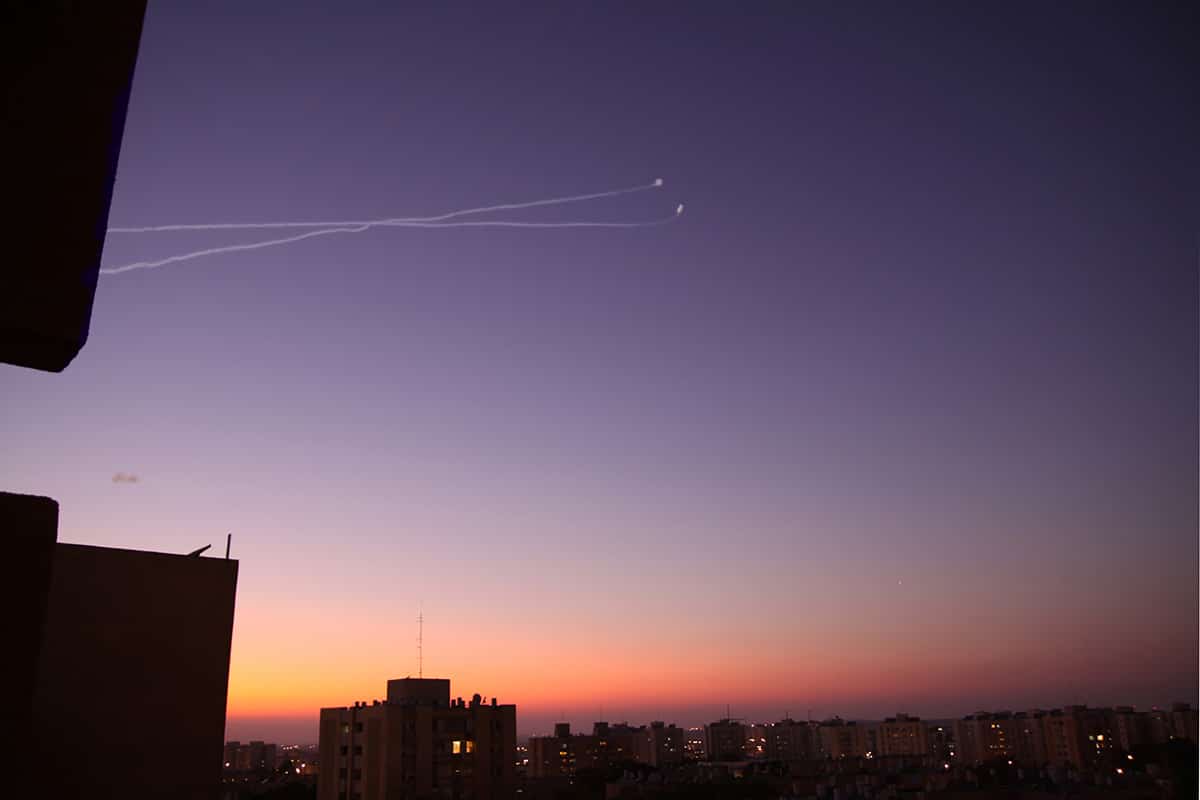
A year and a half before October 7, officers of the IDSF movement sat in the living room of Amir Avivi, the movement’s founder and CEO. They understood that something was afoot and that they must warn the security services about what was liable to happen. At the meeting, they discussed a “strategic, tectonic, global, and regional change” that we were experiencing and that would lead, in their view, to immense escalation. “When we connected the dots, we understood that we were heading for war,” Avivi recalls.
At the same meeting, they decided to write a situational assessment. The IDSF movement delivered a 300-page document to Naftali Bennett and Benjamin Netanyahu, who at the time were prime minister and opposition leader respectively, and to the head of the Mossad, the National Security Council, and others.
As early as May 2022, Avivi visited the Knesset with the report, which he’d prepared together with some leaders of the security services, and he warned that “today we’re in a situation where processes that have been under way for many years are reaching their culmination.” He expanded on the existential threats against the State of Israel. “There is an Iranian deployment that, in practice, embraces both the drive for nuclearization and the rockets, missiles, and drones. There is a force that will guide Iran toward the understanding that on the one hand they can attack, and on the other hand we’ll be forced to if they don’t.”
Today, a year after the Sabbath that saw the murder of more than 1,200 people, Avivi isn’t brandishing the report and its prophetic conclusions. Instead he is thinking of what comes next. He speaks of the hostages’ return as a matter of central importance, of the need for broad democratic consensus regarding the State’s deep-level processes, and of what the future may hold — a campaign for regional peace agreements.
“There was a belief in holding out a little longer”
On the anniversary of the events that opened the war, Avivi visited the Ynet studio for a special interview with Sharon Kidon. “Israel has been avoiding war, as part of a strategic choice that resembles what the USA chose in the face of the USSR — to wait for everything to settle down on its own,” Avivi said, explaining why Israel hadn’t taken action that would have prevented the massacre. “The Arab Spring gave the security services and the Israeli government a lot of confidence that the strategy was working. That while we were avoiding war, the other Mideastern states were reducing themselves to fragments. Yemen, Iraq, Egypt, Syria. There was a belief that if we held out a little longer and then a little longer, eventually Hamas, Hezbollah, and the Iranians would all collapse. It was just a matter of holding out a bit.”
The IDSF warned of a severe attack impending, but without knowing what the timing would be. “I said, ‘When you see a swarm of rockets flying, you can be sure that’s the beginning of the war,’” Avivi relates. “We’ve learned that when you have a terrorist army at your fence, even the security services won’t necessarily be aware of the timing. For that reason, terrorist armies shouldn’t be at the fence.”
You’ve mentioned victory more than once. What’s your vision of victory?
“The developments we’re currently experiencing will force us to adjust our war objectives. We started out on October 7, a year ago, entering a war really against our will, and we set three objectives: eliminating Hamas as a governmental and military organization, returning all our hostages, and creating conditions in Gaza that will prevent a terrorist army from ever reappearing. We’ve more or less dismantled Hamas as a military organization, but not as a government. This is where the pronouncements of the security services and the prime minister come in, and they’re now getting into the humanitarian issue. We need to finish the work. We need to return our hostages.”
Can you define what victory looks like in this connection?
“Victory doesn’t mean that there’s not a single terrorist in Gaza,” he clarifies. “So what does it mean? That all the hostages are back. That Hamas has lost its hold on Gaza both militarily and governmentally. That everyone with a home in northern Israel is back, is safe, and can live confidently with no threat from Hezbollah. The State of Israel understands that it must add the Iranian nuclear program to its war objectives. Victory will mean that the existential danger from the Iranian nuclear umbrella has been dealt with. I hope that the Americans will open their eyes and understand that we need to handle that one together.”
“No need for uniformity — just unity”

On the issue of internal polarization in Israel, Avivi contends that what’s needed is not uniformity but unity. Differences in outlook should be put aside for the sake of joint decision-making that will make development and growth possible. “We don’t need to be uniform,” he explains. “We have lots of opinions, but we need to converge on the ethos on which the nation was founded. Let’s remember what we are here for, what the Land of Israel means to us, who and what we are as a people — and let’s hold a tolerant discussion. We don’t need to reach agreement on everything. Where we don’t, our democracy decides. But we need to agree on broad issues. Our culture needs a lot of work. A firm majority of Israeli society is tired of the squabbles and wants a safe, thriving, meaningful future.”
Avivi’s expectations for the future are optimistic, including regional peace agreements. “We all feel that within this war, there was a revolution,” he emphasizes. “We’ve all seen now what we’re capable of doing when we’re together in battle. I think that this year will be the decisive one, with us defeating our enemies. From there, we must proceed to peace agreements, a thriving economy, mass immigration, and a discourse among ourselves that makes for togetherness and unity in the spirit of our ethos. We have a tendency to embrace extremes, but we need to converge in the center. I’m optimistic. I think our society’s has wonderful days ahead.”
The article was originally published on ynetnews



